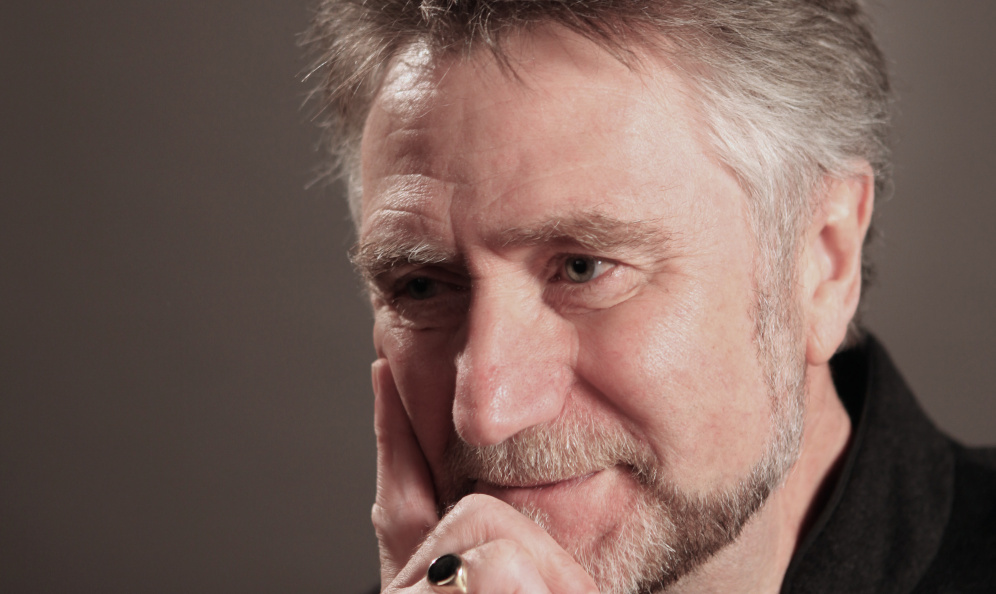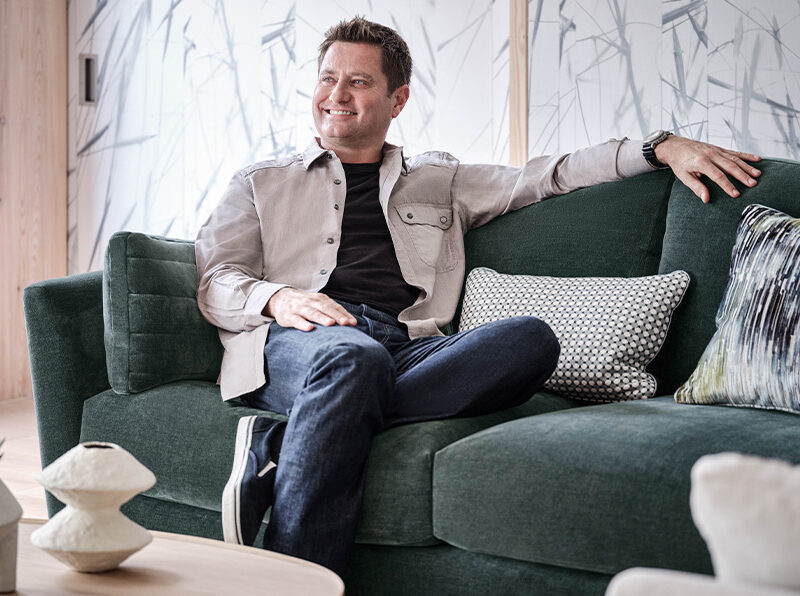
Top tips for writing a novel
Top tips for writing a novel
Wimbledon author Martin Granger on his new novel, his inspiration and advice for aspiring writers…
Wimbledon film-maker and author Martin Granger has a new book out in April inspired by a documentary he made for BBC’s Horizon on the origins of the universe. It was a huge hit and so inspired Martin that, 25 years on, he has used it as the topic for his thriller Out of Sight, with space junk taking on a sinister role. Says Martin: “There’s half a million pieces of space junk, travelling at thousands of miles an hour above our heads. An accident waiting to happen. And what if it’s not an accident? There lies the plot for a thriller…!”
It sounds intriguing so we caught up with Martin to find out more and his tips on writing…
What are your memories of working on the Horizon show? What did you find out that really surprised you?
We had just flown in from Kitt Peak Arizona. An amazing location, one of the largest collections of astronomical instruments in the world. Massive telescopes on Desert Mountain tops measuring the depth of the universe. A perfect setting for our BBC Horizon on the Big Bang.
‘What’s next on the agenda?’ I asked my PA. Cleveland she replied. My expletives could be heard all around the Wimbledon production office. We had just spent nine hours in an aeroplane flying back from America. ‘No, not Cleveland Ohio, Cleveland in Yorkshire.’ It was the Boulby mine, the deepest mineshaft in Europe. An unusual place to look for the origins of the Big Bang you might think. But no. There’s a laboratory down there, a mile underground, looking for tiny particles that might be some of the original matter that makes up our universe. Why aren’t they looking up at the sky rather than under the ground? The problem with our sky is that it’s filled with particles and noise. When you’re a mile underground the rock above your head blocks most of it out, and if you’re lucky you might find the tiny particles that get through. There’s more to the universe than meets the eye.
You’ve used your work for inspiration for your books – what other sources of inspiration would you advise for aspiring authors?
I’ve been fortunate, thirty years of global travel to far-flung places paid for by film production budgets. Sources of inspiration and research that would have been impossible from my own funds. My themes are international but aspiring authors can draw upon their own experiences. Not all thrillers have to be set in exotic climes. I had one reader recently who wrote to me saying that he enjoyed the writing and the book but preferred settings that he was familiar with, closer to home. It’s a cliché, but the advice is to write about what you know, and if there are any small gaps, there are always the Internet search engines.
How did you first take the plunge into writing fiction?
How many times have you heard people say that one day I’m going to write a book? I must admit I was one of them. I have spent most of my life writing and directing film documentaries. One of them was on modern piracy in the Far East for the BBC. It was a great story – pirates stealing ships the size of skyscrapers – but there was one part we couldn’t put on TV. We believed it to be true but we didn’t have enough evidence. ‘One day I’ll write that as fiction in a novel.’ I said. More than ten years passed and I still hadn’t written it until one evening I had dinner with a Hollywood producer. I told him my story and will never forget his advice. ‘Write it fast and write it bad,’ he said, ‘or you’ll never do it.’ He was right of course. If you’re worried about the opening line or how good it will look you’ll never start. Write it fast and write it bad, you can always come back to it later and change it.
How do you write – what tips do you have on making time, drafting, redrafting…
How do I write? Well I don’t. Many years ago I used to scribble all of my video and television scripts using pencil and lined paper. My handwriting was so bad that the person who typed them up strode into my office one day and demanded some petty cash to buy me a piece of speech-activated software. Unconvinced I sat in my room, put on the headset and microphone and spoke into the machine. ‘This isn’t going to work.’ I said irritably. But up the words came. I’ve used it ever since, and these words on the page are coming out of my mouth right now. The speech rhythm really helps. It was great for film scripts where most of the words are spoken by actors. Now I’ve turned to thrillers I find the dialogue easier to write, or should I say speak.
I’m probably the worst person to ask about making time to write and redraft. I often go months without writing a word, and then I might get on a roll. Writing novels is about storytelling, and if I’ve got a story to tell I’ll tell it. A lot of the time the story crystallises in your head while you’re doing other things. For me, getting it down on paper means recalling that story, visualising it, and describing it to other people. I can’t say that I do a lot of structural redrafting. Perhaps it’s because I speak my books. Most of the editing is for the minutiae of punctuation and finding the alternative for the odd word that I’ve repeated. It’s amazing how much you can miss though. Professional proof-readers are worth their weight in gold.
If there is one thing all aspiring writers should know, it is….
If you have a story to tell, tell it, then read it aloud to yourself. If it sounds like your story give it to a good editor and ask them what they think. And, if you’re having problems starting – Write it fast and write it bad!
What next for you – more books in the pipeline?
I have now written four thrillers. Each based on one of my old television documentaries. So what next? I’m mulling over the possibility of replaying the series I made on oil spills. Disasters around the world involving sunken ships and burst pipelines. I even have a title – Fuel for Thought. But I’m going to let that idea ferment for a while. Meanwhile, I thought I’d experiment with a new genre. I’m an avid theatregoer and have missed it during the pandemic lock-down. So I started writing a stage play. It’s not easy, holding an audience’s attention for an hour and a half. I’m starting from scratch by reading some of David Hare’s plays to see how he does it. When I have finished, I would love to see someone to try it out. Any aspiring dramatists out there?
OUT OF SIGHT by Martin Granger
SATELLITES AND SPACE JUNK
DANGER IN THE SKIES
When rogue junk collides with a television satellite 22 000 miles into space, blind cosmologist Harry Stones approaches film director Nathalie Thompson to make an investigative documentary. Undeterred by Harry’s lack of sight, their quest leads them from the peaks of Arizona to a mile-deep mine in Yorkshire, and finally to a launch pad in Kazakhstan. As more and more satellites keep falling out of the sky, their curiosity turns to fear. Forewarned of the possible outbreak of WWIII, can Harry and Nathalie prevent the most catastrophic space collision of all time?
READ MORE






